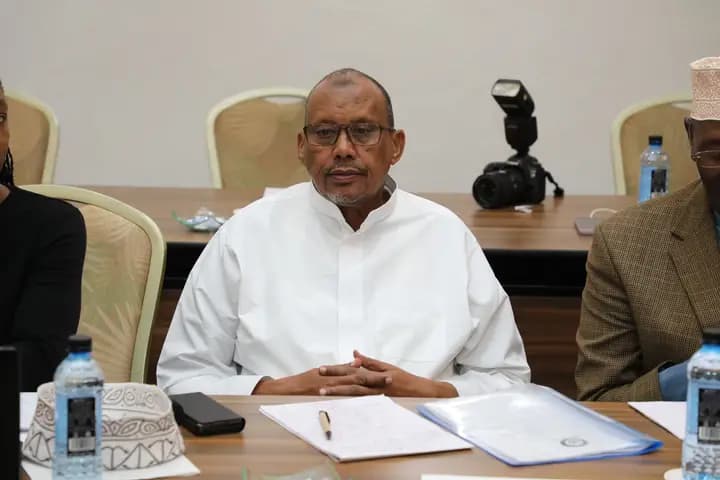Senators demand full transfer of power, funds to counties

The Senate Standing Committee on Devolution and Intergovernmental Relations has demanded the full transfer of devolved functions, resources, and legal authority to county governments.
The call was made during a high-level consultative meeting held in Mombasa on, Friday, May 30, 2025, with the Intergovernmental Relations Technical Committee (IGRTC).
Chaired by Wajir Senator Sheikh Abbas Mohamed, the committee convened to review progress on the implementation of Kenya Gazette Vol. CXXVI No. 219, dated December 16, 2024, which outlines the delineation of functions between national and county governments.
“This meeting is not just a routine engagement. It is about operationalising the spirit of devolution,” Abbas said.
He stressed that it is unconstitutional and unsustainable for counties to bear responsibilities without the necessary funds, legislation, and capacity.
IGRTC Chairperson CPA Kithinji Kiragu confirmed that 12 Gazette Notices (Nos. 16472–16483) had been published to formally unbundle devolved functions.
“We now know what belongs to counties and what the national government must let go of,” Kiragu stated. He noted that the focus must now shift to transferring resources, staff, and assets, aligned with the newly delineated functions,” Kiragu said.

Allocation Uproar
A valuation exercise by IGRTC initially estimated the transfer at over Ksh272 billion, Kiragu revealed that a fresh review in collaboration with the Commission on Revenue Allocation is underway and will be completed by September 2025, to inform the 2026/2027 national budget.
Concerns were raised about national government encroachment on devolved functions. Senator Mohamed Chute questioned the recent merger of the National Cereals and Produce Board with the Kenya National Trading Corporation.
“The merging of NCPB is a clear disregard of the constitutional imperative to devolve agriculture,” he said.
He also criticised the use of the Housing Levy to fund market construction.
“If there were goodwill, the money should go directly to the counties,” Senator Chute said.
The committee also flagged challenges in staffing at county level. Senator Abbas decried nepotism and unqualified appointments.
“It defeats the whole purpose of service delivery when counties hire ‘job group R’ graduates simply because they are related to someone powerful,” he said.
A critical function—control of air pollution, noise pollution, public nuisances, and outdoor advertising—was found missing from the Gazette Notices. IGRTC acknowledged the omission and assured it would be corrected in a supplementary gazette after consulting the Attorney General.
To close legal and policy gaps, the committee resolved to fast-track the long-awaited Omnibus Bill.
This legislation will align over 94 statutes with the 2010 Constitution and the Intergovernmental Relations Act. Stakeholders including the National Treasury, Attorney General’s office, and Council of Governors will be involved in finalising the Bill.
The committee also expressed concern over delays in the transfer of public assets. Kiragu reported that over 400 public buildings lack formal ownership status, but IGRTC, working with the National Land Commission, would begin formal transfers by June 2025.
Despite existing overlaps, particularly in education and feeding programs, Kiragu reminded the committee that Article 187 of the Constitution permits function sharing through legally binding, time-bound agreements.
“We are not where we were five years ago. The systems are maturing. With the support of Parliament, we can align policy, law, and resources,” Kiragu said.
The committee plans county visits in the coming months to assess readiness for the July 2025 deadline for function transfer and to push for enforceable timelines.
Virtually participating senators included Karungo Thangwa (Kiambu), Peris Tobiko (Nominated), and Margaret Kamar (Nominated), all of whom raised concerns about capacity gaps, legal clarity, and funding for newly assigned responsibilities.













